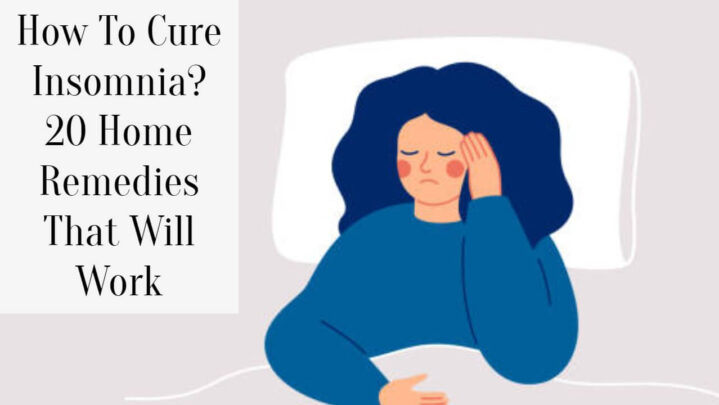Stress, anxiety, depression, pharmaceutical side effects, or an inconsistent sleep routine can all contribute to insomnia. Yet, there are various home treatments for insomnia that you might try. Here are 20 effective sleep-improvement remedies:
Create and keep a regular sleep schedule.
Before going to bed, avoid coffee, alcohol, and nicotine.
Keep the room dark and silent to create a peaceful sleeping atmosphere.
Workout on a regular basis, but avoid strenuous activities before night.
Before going to bed, take a warm bath or shower.
Relax your thoughts by using aromatherapy oils such as lavender, chamomile, or sandalwood.
To relax, try meditation or deep breathing techniques.
Relax by listening to peaceful music or nature noises.
Before going to bed, drink a cup of warm milk or herbal tea, such as chamomile or valerian root tea.
To support your body, choose a comfy mattress and pillows.
Daytime naps should be limited to 30 minutes or fewer.
Maintain a sleep journal to keep note of your sleeping habits and any causes.
To relieve muscular tension, practice gradual muscle relaxation.
To filter out extraneous sounds, use a white noise machine or earplugs.
To recognize and alter negative attitudes and habits that interfere with sleep, try cognitive-behavioral therapy.
Eat light meals before going to bed.
Before going to bed, limit your exposure to blue light from electronic gadgets.
To promote relaxation and sleep quality, try yoga or tai chi.
Under the supervision of a healthcare expert, consider taking natural sleep aids such as melatonin or passionflower extract.
Get medical attention if your sleeplessness persists or has a substantial impact on your everyday life.
In conclusion, insomnia may greatly damage your health and quality of life, but there are various home treatments you can attempt to enhance your sleep quality.





